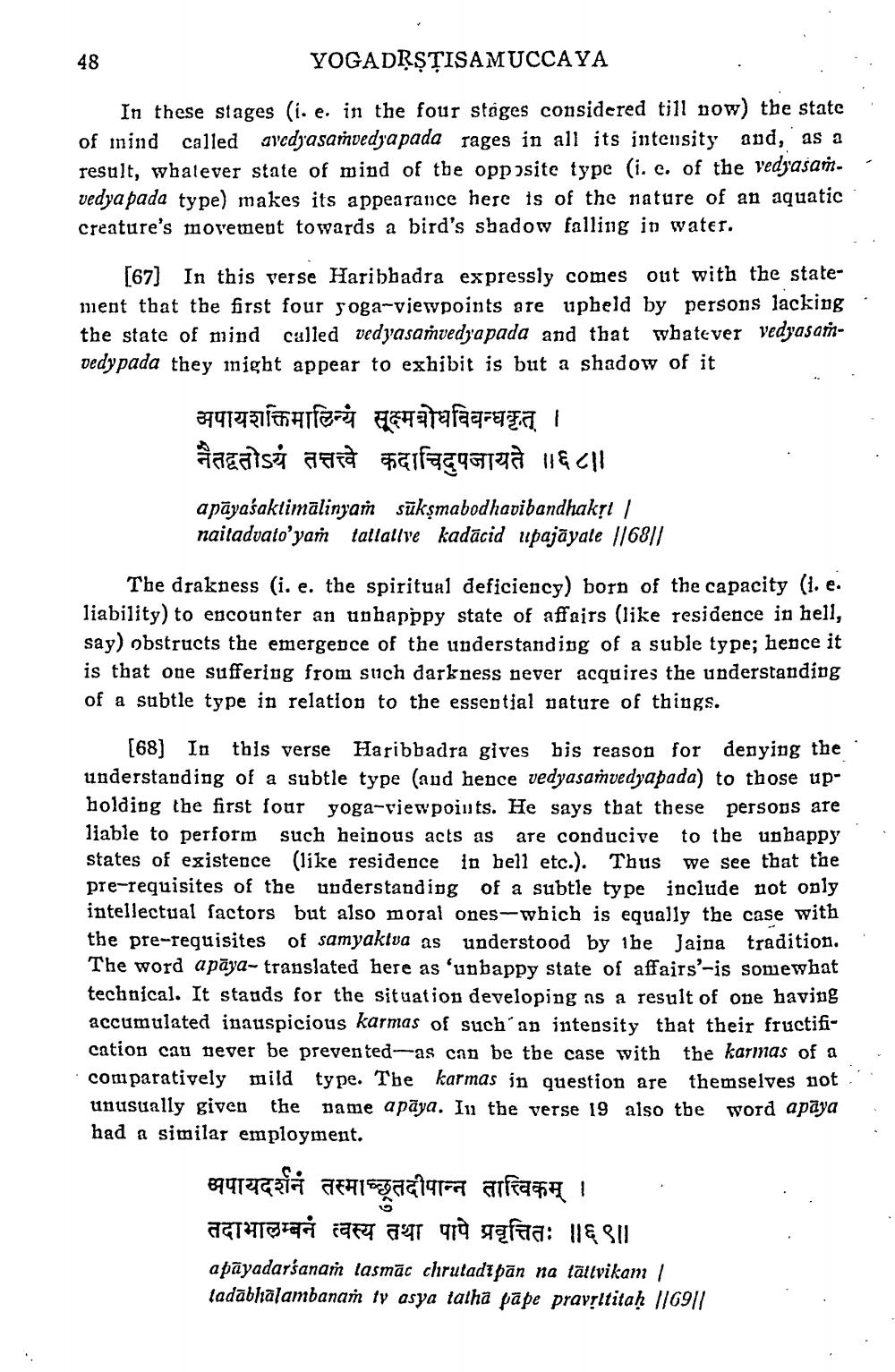________________
48
YOGADRȘTISAMUCCAYA
In these stages (i. e. in the four stages considered till now) the state of mind called avcdyasamvedya pada tages in all its intensity and, as a result, wbalever state of mind of the opposite type (i. c. of the vedyasan. vedya pada type) makes its appearance here is of the nature of an aquatic creature's movement towards a bird's shadow falling in water.
[67] In this verse Haribbadra expressly comes out with the statenient that the first four yoga-viewpoints are upheld by persons lacking. the state of mind called vedyasañvedya pada and that whatever vedyasarvedy pada they inight appear to exhibit is but a shadow of it
अपायशक्तिमालिन्य सूक्ष्मबोधविबन्धकृत् । नैतद्वतोऽयं तत्तत्वे कदाचिदुपजायते ॥६८॥ apāyasaktimālingań sūkşmabodhavibandhakst / naitadvato’yam tallallve kadācid upajāyale 1168||
The drakness (i. e. the spiritual deficiency) born of the capacity (1. e. liability to encounter an unhapppy state of affairs (like residence in hell, say) obstructs the emergence of the understanding of a suble type; hence it is that one suffering from such darkness never acquires the understanding of a subtle type in relation to the essential pature of things.
[68] In this verse Haribbadra gives bis reason for denying the understanding of a subtle type (and hence vedyasamvedyapada) to those upholding the first four yoga-viewpoints. He says that these persons are liable to perform such heinous acts as are conducive to the unhappy states of existence (like residence in hell etc.). Thus we see that the pre-requisites of the understanding of a subtle type include not only intellectual factors but also moral ones-which is equally the case with the pre-requisites of samyaktva as understood by the Jaina tradition. The word apāya- translated here as 'unbappy state of affairs'-is somewhat technical. It stands for the situation developing as a result of one having accumulated inauspicious karmas of such an intensity that their fructification can never be prevented-as can be the case with the karmas of a comparatively mild type. The karmas in question are themselves not unusually given the name apāya. In the verse 19 also the word apaya had a similar employment.
अपायदर्शनं तस्माच्छ्रतदीपान्न तात्त्विकम् । तदाभालम्बनं त्वस्य तथा पापे प्रवृत्तितः ॥६९॥
a pāyadarśanam lasmāc chrutadıpān na tällvikam / ladabhalambanam ty asya tatha pape pravşltitah 1169//




